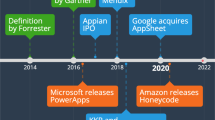Abstract
Code-level timing analysis, such as worst-case execution time (WCET) analysis, usually takes place at the binary level. However, many program properties that are important for the analysis, such as constraints on possible program flows, are easier to derive at the source code level since this code contains much more information. Therefore, various source-level analyses can provide valuable support for timing analysis. However, source-level analysis is not always smoothly applicable in industrial settings. In this paper, we report on the experiences of applying source-level analysis to industrial code in the ALL-TIMES project: the promises, the pitfalls, and the workarounds that were developed. We also discuss various approaches to how the difficulties that were encountered can be tackled.
Similar content being viewed by others
References
Barkah, D., Ermedahl, A., Gustafsson, J., Lisper, B., Sandberg, C.: Evaluation of automatic flow analysis for WCET calculation on industrial real-time system code. In: Burns, A. (ed.) Proceedings of 20th Euromicro Conference on Real-Time Systems, pp. 331–340 (2008)
Bessey A., Block K., Chelf B., Chou A., Fulton B., Hallem S., Henri-Gros C., Kamsky A., McPeak S., Engler D.: A few billion lines of code later: using static analysis to find bugs in the real world. Commun. ACM 53(2): (2010)
Byhlin, S., Ermedahl, A., Gustafsson, J., Lisper, B.: Applying static WCET analysis to automotive communication software. In: Proceedings of 17th Euromicro Conference on Real-Time Systems (ECRTS’05) (2005)
Carlsson, M., Engblom, J., Ermedahl, A., Lindblad, J., Lisper, B.: Worst-case execution time analysis of disable interrupt regions in a commercial real-time operating system. In: Pettersson, P., Yi, W. (ed.) Proceedings of 2nd International Workshop on Real-Time Tools, Copenhagen (2002)
CIL infrastructure for C program analysis and transformation (2010) http://manju.cs.berkeley.edu/cil
Cousot, P., Cousot, R., Feret, J., Mauborgne, L., Miné, A., Monniaux, D., Rival, X.: The ASTRÉE analyzer. In: Sagiv, M. (ed.) Proceedings of 14th European Symposium on Programming. Lecture Notes in Computer Sci., vol. 3444, pp. 21–30. Springer, Berlin (2005)
Emanuelsson, P., Nilsson, U.: A comparative study of industrial static analysis tools (extended version). Technical report, Linköping University (2008)
Ferdinand, C., Heckmann, R., Langenbach, M., Martin, F., Schmidt, M., Theiling, H., Thesing, S., Wilhelm, R.: Reliable and precise WCET determination for a real-life processor. In: Proceedings of 1st International Workshop on Embedded Systems (EMSOFT2001), LNCS, vol. 2211 (2001)
Gustafsson, J.: SWEET manual, 2011. http://www.mrtc.mdh.se/projects/wcet/sweet/manual/
Gustafsson, J., Ermedahl, A., Lisper, B., Sandberg, C., Källberg L.: ALF—a language for WCET flow analysis. In: Holsti, N. (ed.) Proceedings of 9th International Workshop on Worst-Case Execution Time Analysis (WCET’2009), pp. 1–11, Dublin, Ireland (2009)
Gustafsson, J., Ermedahl, A., Sandberg, C., Lisper, B.: Automatic derivation of loop bounds and infeasible paths for WCET analysis using abstract execution. In: Proceedings of 27th IEEE Real-Time Systems Symposium (RTSS’06), pp. 57–66, Rio de Janeiro, Brazil, Dec. (2006). IEEE Computer Society
Healy C., Sjödin M., Rustagi V., Whalley D., van Engelen R.: Supporting timing analysis by automatic bounding of loop iterations. J. Real-Time Syst. 18(2–3), 129–156 (2000)
Heckmann, R., Ferdinand, C., Kästner, D., Nenova, S.: Architecture exploration and timing estimation during early design phases (this volume)
Holsti, N., Långbacka, T., Saarinen, S.: Using a worst-case execution-time tool for real-time verification of the DEBIE software. In: Proceedings of DASIA 2000 Conference (Data Systems in Aerospace 2000, ESA SP-457) (2000)
Holsti, N., Långbacka, T., Saarinen, S.: Worst-case execution-time analysis for digital signal processors. In: Proceedings of EUSIPCO 2000 Conference (X European Signal Processing Conference) (2000)
Kirner, R.: Extending Optimising Compilation to Support Worst-Case Execution Time Analysis. PhD thesis, Technische Universität Wien, Vienna, Austria (2003)
Kirner, R., Knoop, J., Prantl, A., Schordan, M., Wenzel, I.: WCET analysis: the annotation language challenge. In: Rochange, C. (ed.) Proceedings of 7th International Workshop on Worst-Case Execution Time Analysis (WCET’2007), pp. 83–99, Pisa, Italy (2007)
Levine, J.: Linkers and Loaders. Morgan Kaufmann, 2000. ISBN 1-55860-496-0
Lisper, B.: The ALL-TIMES project: Introduction and overview (this volume)
Merriam, N., Lisper, B.: Estimation of productivity increase for timing analysis tool chains (this volume)
Montag, P., Goerzig, S., Levi, P.: Challenges of timing verification tools in the automotive domain. In: Margaria, T., Philippou, A., Steffen, B. (ed.) Proceedings of 2nd International Symposium on Leveraging Applications of Formal Methods (ISOLA’06), Paphos, Cyprus (2006)
Nielson, F., Nielson, H.R., Hankin, C.: Principles of Program Analysis, 2nd edn. Springer, Berlin. ISBN 3-540-65410-0 (2005)
Prantl, A., Schordan, M., Knoop, J.: TuBound—a conceptually new tool for worst-case execution time analysis. In: Kirner, R. (ed.) Proceedings of 8th International Workshop on Worst-Case Execution Time Analysis (WCET’2008), pp. 141–148, Prague, Czech Republic (2008)
Rodriguez, M., Silva, N., Esteves, J., Henriques, L., Costa, D., Holsti, N., Hjortnaes, K.: Challenges in calculating the WCET of a complex on-board satellite application. In: Proceedings of 3rd International Workshop on Worst-Case Execution Time Analysis (WCET’2003), Porto (2003)
Rose http://www.rosecompiler.org (2012)
Sandell, D., Ermedahl, A., Gustafsson, J., Lisper, B.: Static timing analysis of real-time operating system code. In: Proceedings of 1st International Symposium on Leveraging Applications of Formal Methods (ISOLA’04), (2004)
Schreiner, D., Barany, G., Schordan, M., Knoop, J.: Comparison of type-based vs. alias-based component recognition for interface-level timing annotations (this volume)
Sehlberg, D., Ermedahl, A., Gustafsson, J., Lisper, B., Wiegratz, S.: Static WCET analysis of real-time task-oriented code in vehicle control systems. In: Margaria, T., Philippou, A., Steffen, B. (eds.) Proceedings of 2nd International Symposium on Leveraging Applications of Formal Methods (ISOLA’06), Paphos, Cyprus (2006)
Thesing, S., Souyris, J., Heckmann, R., Randimbivololona, F., Langenbach, M., Wilhelm, R., Ferdinand, C.: An abstract interpretation-based timing validation of hard real-time avionics software. In: Proceedings of the IEEE International Conference on Dependable Systems and Networks (DSN-2003) (2003)
Author information
Authors and Affiliations
Corresponding author
Rights and permissions
About this article
Cite this article
Lisper, B., Ermedahl, A., Schreiner, D. et al. Practical experiences of applying source-level WCET flow analysis to industrial code. Int J Softw Tools Technol Transfer 15, 53–63 (2013). https://doi.org/10.1007/s10009-012-0255-9
Published:
Issue Date:
DOI: https://doi.org/10.1007/s10009-012-0255-9




